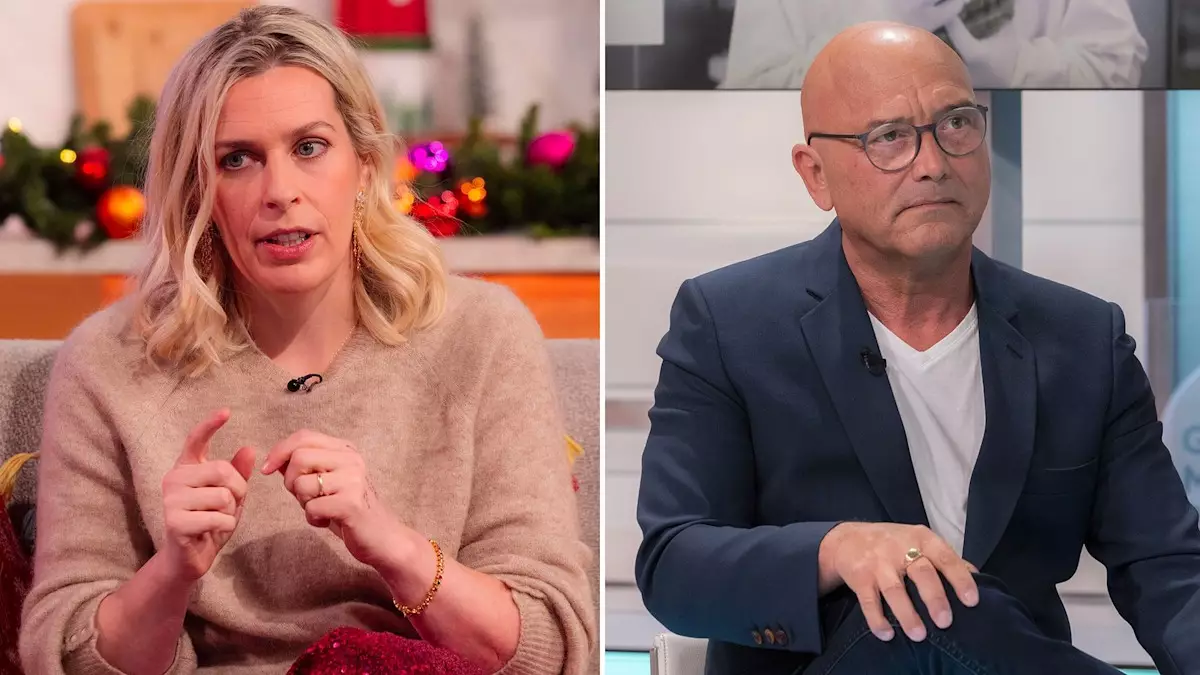In a recent appearance on the morning show Lorraine, comedian Sara Pascoe made waves while discussing the revival of The Great British Sewing Bee. The program has garnered a loyal following over the years, and Pascoe, returning as host for a festive special, brought her signature wit to the conversation. However, the ease of the show was interrupted by a more serious topic, as she touched on the controversy surrounding her former colleague, Gregg Wallace.
Wallace, who has become a familiar face across various culinary reality shows, is currently the subject of scrutiny following allegations from 13 individuals over a span of 17 years. This situation has grabbed headlines, prompting an investigation by the production company Banijay UK. During her chat with Lorraine Kelly, Pascoe made a provocative remark, describing herself and Lorraine as “middle-aged women of a certain class,” subtly aligning them with the accusers and pushing back against Wallace’s recent comments dismissing their concerns.
Although the interview began with light-hearted banter, it swiftly navigated into deeper waters as both women expressed solidarity against Wallace’s perceived attitude toward the allegations. Lorraine’s response, invoking a tone of strength, highlighted the seriousness with which they viewed the matter—stating, “Do not cross us at your peril.” This declaration spoke to a resurgence of female empowerment in media discussions, showcasing that women are unwilling to silently endure any form of misconduct, even from high-profile personalities.
Gregg Wallace found himself in further hot water after posting a controversial video. In it, he claimed that the accusations were primarily from “a handful of middle-class women of a certain age” and suggested that inappropriate comments had been made by numerous contestants across his shows. His assertions were met with a swift backlash, described by many as misogynistic, earning him criticism even from governmental spokespeople. The implications of his comments were extensive, revealing a disconnect between his perspective and the experiences of those who came forward.
In a public relations attempt to mitigate the fallout, Wallace issued an apology via social media, admitting that he had been in a poor emotional state when he recorded the video. Stress, he claimed, had clouded his judgment. This apology reflects a broader need for accountability among public figures, particularly regarding how they handle serious allegations. The media landscape is shifting, placing significant pressure on those in positions of influence to respond with sensitivity and an awareness of the underlying issues at play.
Pascoe’s candid remark about being formidable women resonates beyond the show, symbolizing a larger movement within the entertainment industry. It suggests a collective stand against the often rampant misogyny that persists, particularly in visual media. Her comment fosters a sense of unity among women, encouraging them to speak up against injustices they may have faced and reaffirming their power in addressing issues that affect them.
As discussions of accountability and gender dynamics continue to evolve in the public arena, it remains vital for those in media to navigate these complex issues with care. Both Pascoe and Lorraine show the impact that advocacy can have when shared between women in powerful positions, paving the way for the future in which respect and accountability are paramount.
